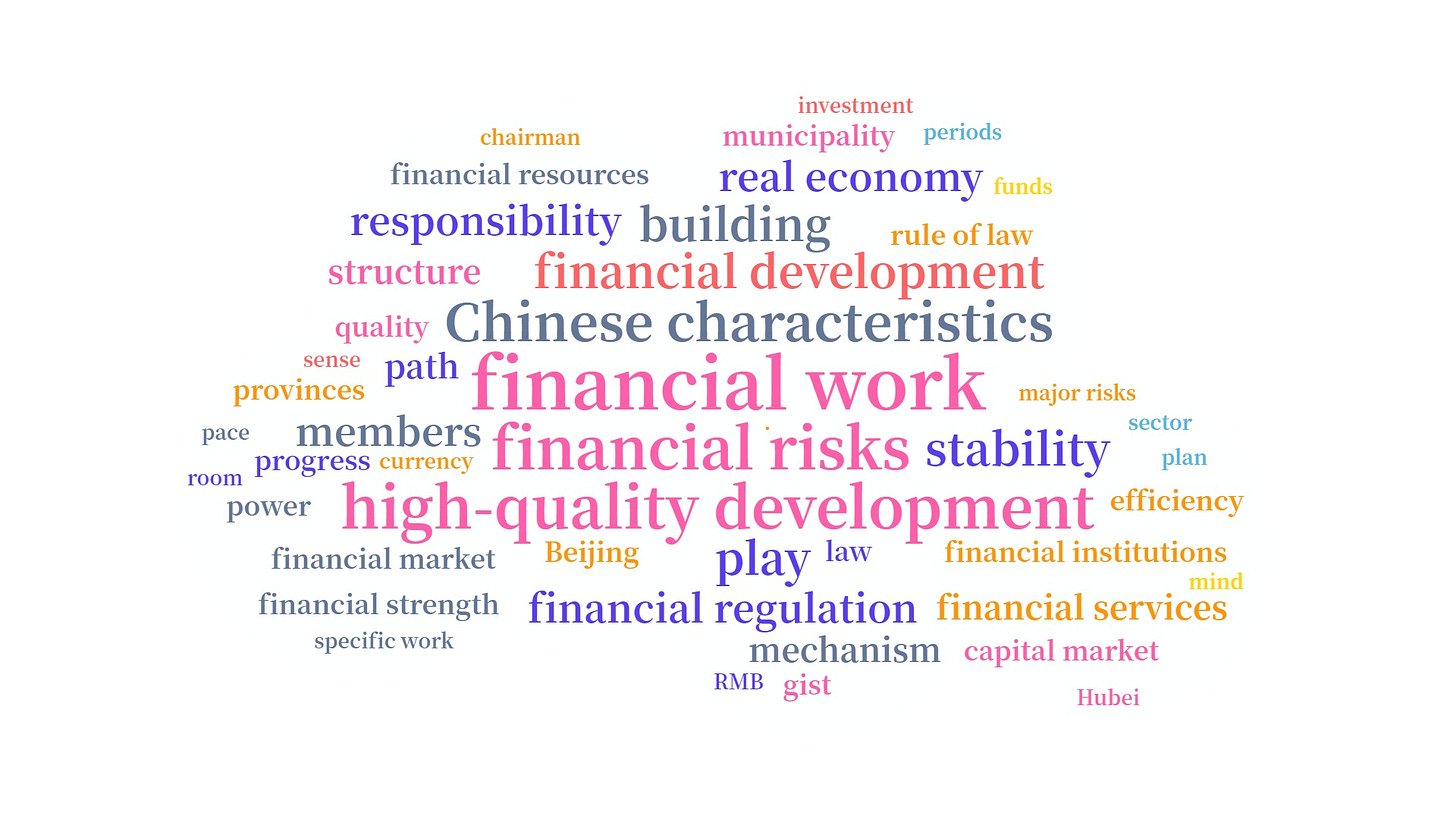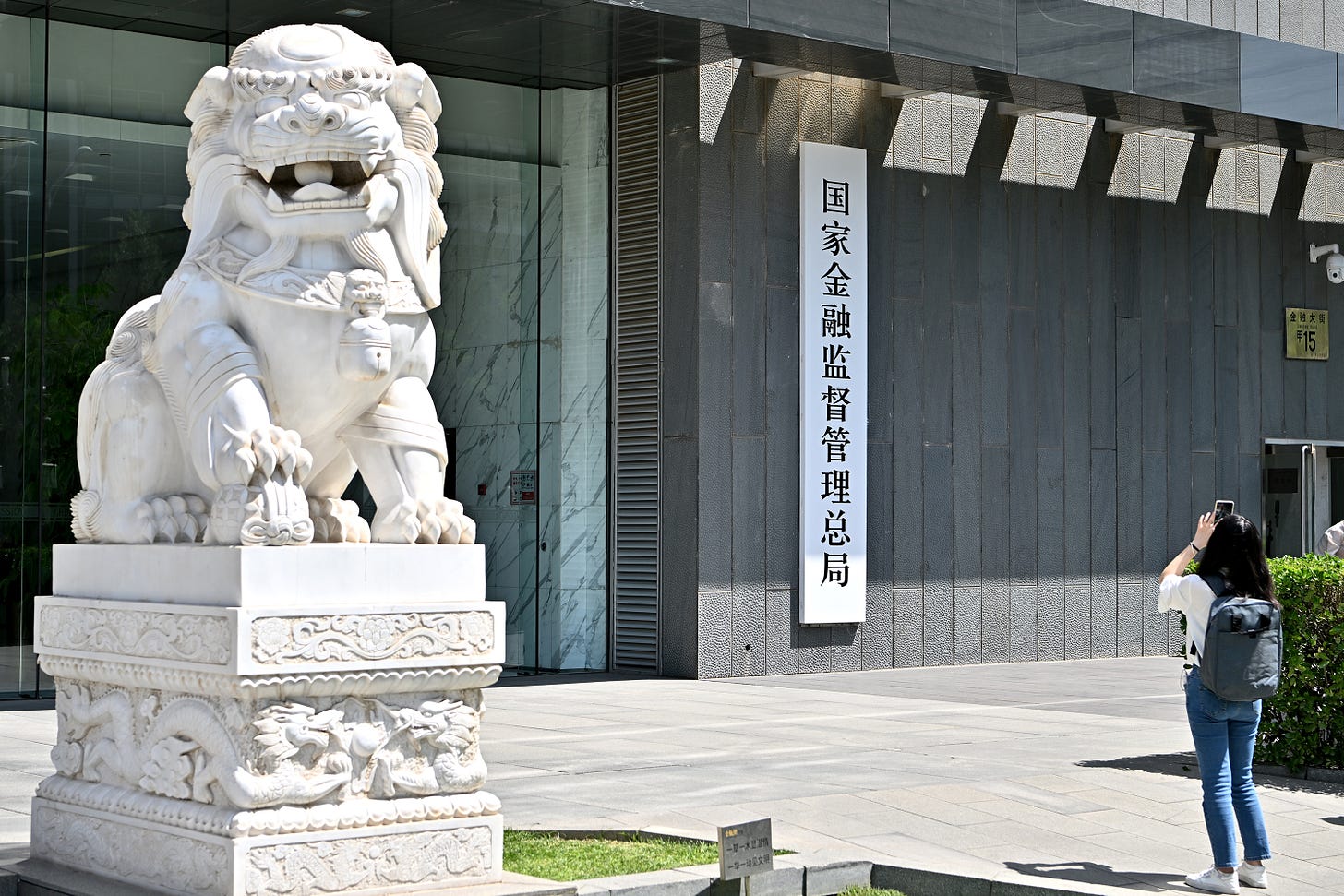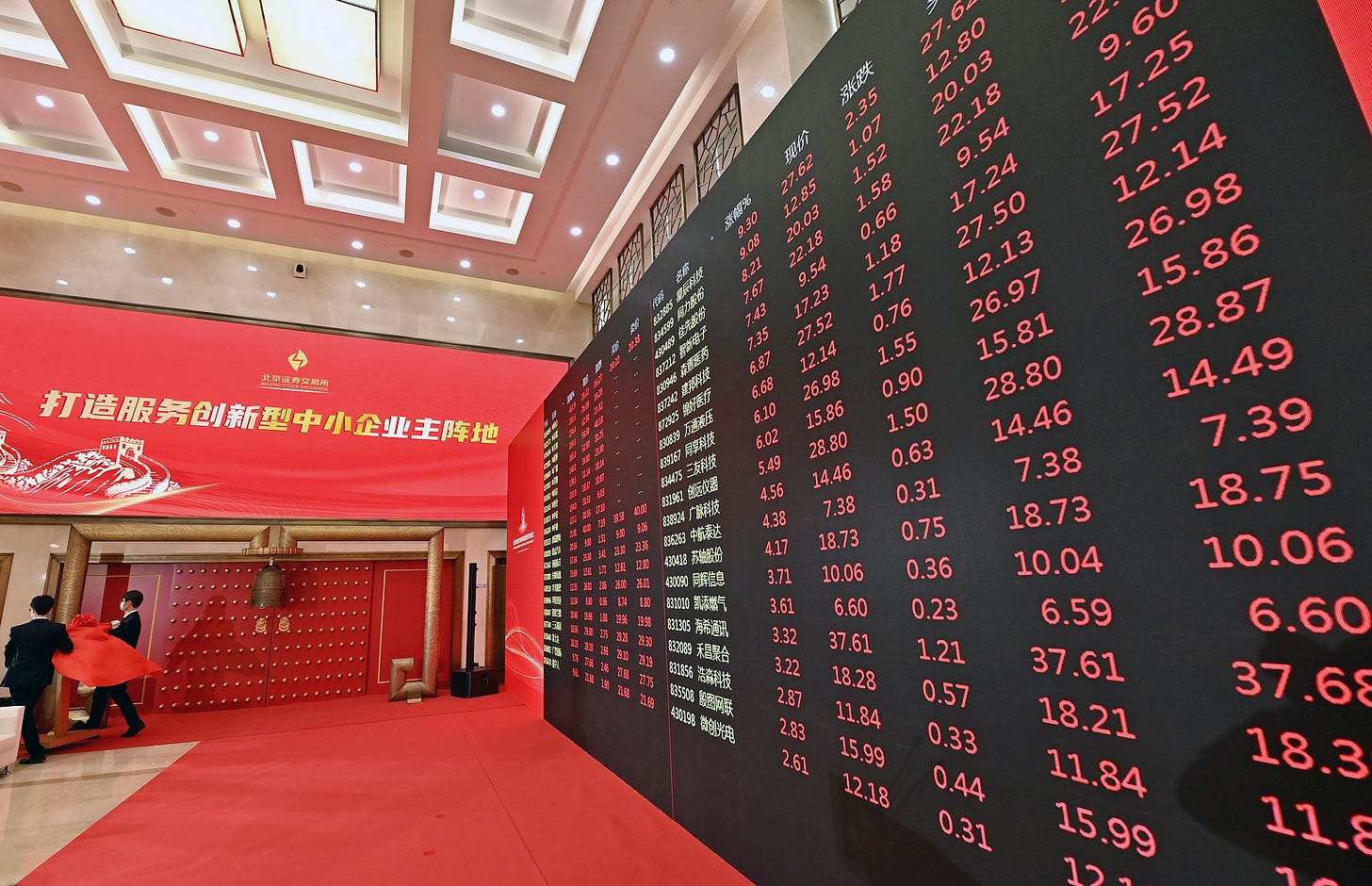Looking into China's financial ambition, you need to review takeaways of this key meeting
A five-yearly financial conference last October can still cast light on 2024 financial work and beyond.
2023 was a year of historic significance for China's financial sector. The Chinese leadership restructured financial regulatory bodies, put forth "the path of financial development with Chinese characteristics" at a five-yearly financial work conference, and intensified the fight against corruption in the financial sector.
To grasp the trend of country's financial policies in 2024, a review of key takeaways of the central financial work conference chaired by President Xi Jinping in Beijing on Oct. 30 and 31 last year could be helpful. At the meeting, Xi reviewed the financial work in the past decade, analyzed the current situations, and arranged relevant work for the future.
The following are highlights of an official statement released after the conference.
The Chinese Path
The financial sector is the lifeblood of a nation's economy and a crucial component of a country's core competitiveness. It is imperative to accelerate the building of a nation with a strong financial sector, comprehensively strengthen financial regulation, improve the financial system, optimize financial services, and effectively forestall and defuse financial risks.
China will remain committed to the path of financial development with Chinese characteristics and boost the high-quality development of its financial sector, according to the meeting.
Progress and Problems
The financial sector has provided strong support for the country's overall economic and social development, resolutely prevented and defused major risks, and made important contributions to achieving the first centenary goal of building a moderately prosperous society in all respects.
But various issues and problems in the financial sector are intertwined and affect each other, and some of them are quite prominent, such as potential financial risks, low quality and efficiency of financial services to the real economy, repeated financial disorders and corruptions, and weak financial supervision and governance capacity.
In 2023, China overhauled its financial regulatory bodies to ensure a stable and robust financial sector. The Central Financial Commission was established to strengthen the Party's leadership over financial work. The National Financial Regulatory Administration was built on the basis of the China Banking and Insurance Regulatory Commission, and it also shoulders some responsibilities previously assumed by the central bank and the securities watchdog. The China Securities Regulatory Commission was placed directly under the State Council, and local branches of the People's Bank of China were reformed.
What To Do Next
The work in the financial sector must be carried out by upholding and strengthening overall Party leadership, with Xi Jinping Thought on Socialism with Chinese Characteristics for a New Era as the guidance. It is imperative to accelerate the building of the country's financial strength, promote high-quality development of the financial sector, deepen the financial supply-side structural reform, improve the integrity, expertise and ability of the financial professionals, and strengthen comprehensive regulation to prevent and defuse risks.
China will create an enabling monetary and financial environment and effectively strengthen the provision of high-quality financial services to major strategies, key areas, and weak links. More financial resources will be channeled into technological innovation, advanced manufacturing, green development, and small, medium-sized, and micro enterprises. Stronger support will be given to the innovation-driven development strategy, and coordinated regional development strategy, and national food and energy security. Technology finance, green finance, inclusive finance, pension finance, and digital finance will be attached to greater importance.
China has been keen on promoting the financial sector to better support for the real economy. In 2023, the country's RMB loans totaled 22.75 trillion yuan, or 3.2 trillion U.S. dollars, and nearly 80% of the funds went to businesses. Major banks' lending to manufacturing, small firms and green development maintained a vibrant 30%-40% annual increase in recent years.
China must maintain a prudent monetary policy and pay more attention to cross-cycle and countercyclical adjustments, enriching the toolbox of monetary policy.
China will clear up channels for funds to enter the real economy. Efforts will be made to optimize the financing structure, give full play to the pivotal role of the capital market, advance the registration-based initial public offering system, develop diversified equity financing, significantly improve the quality of listed companies, and cultivate first-class investment banks and institutions. Work will also be done to promote the bond market.
China will make large state-owned financial institutions stronger and better to play a major role in serving the real economy and being a cornerstone for financial stability. Strict admission standards and regulatory requirements for small and medium-sized financial institutions must be enforced, and their operation should be based locally with their own distinctions. The functional positioning of policy-based financial institutions should be strengthened. The insurance industry should better serve as an economic shock absorber and stabilizer for social harmony.
China will strengthen market rules, create a unified and coordinated regulatory framework for the financial market, and promote the formation of long-term capital. Improvements will be made in corporate governance, the modern financial enterprise system with Chinese characteristics, and the management of state-owned financial capital. The channels for bank capital replenishment will be broadened, and risk isolation between industries and finance must be ensured.
China will promote high-standard financial opening up and ensure national financial and economic security. The institutional financial opening up will be expanded and the cross-border investment and financing will be facilitated, so as to attract more foreign financial institutions and long-term capital to invest and operate in China. The central authorities will boost the competitiveness and influence of Shanghai as an international financial center and consolidate and upgrade the status of Hong Kong as an international financial center.
Strengthened Regulation
China will comprehensively strengthen financial regulation and effectively forestall and defuse financial risks. All financial activities will be under supervision so as not to leave any room for regulatory gaps or blind spots.
Risks in small and medium-sized financial institutions should be addressed without delay. A long-term mechanism on handling local government debt risks will be established. A virtuous cycle between finance and real estate should take shape, which includes a better regulatory system for real estate enterprises and fund management, macro-prudential management of real estate finance, and equal treatment for different types of real estate enterprises in meeting their reasonable financing needs.
It must be ensured that the financial markets perform in a robust and stable manner, and efforts should be made to prevent risks from passing through and resonating across different regions, markets and borders. The management of foreign exchange markets should be strengthened, and the RMB exchange rate should be kept generally stable at a reasonable and balanced level.
Illegal, criminal and corruption-related activities must be resolutely cracked down on to guard against risks of moral corruption.
More than 100 senior financial officials and executives of state-owned institutions were placed under investigations for corruption and other illegal activities in 2023, including Liu Liange, former Party chief and chairman of the Bank of China, Zhou Qingyu, a former vice president of China Development Bank, and Li Xiaopeng, former chairman of China Everbright Group.
Cai Esheng, former vice chairman of the former China Banking Regulatory Commission, was sentenced to death with a two-year reprieve for accepting bribes and abusing power. Fan Yifei, a former vice governor of the People's Bank of China, was prosecuted for bribe-taking.











